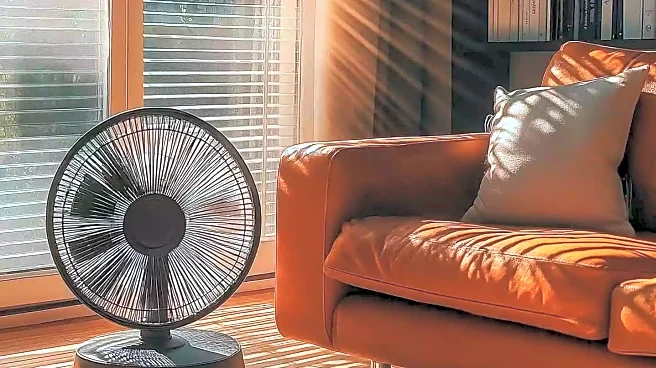What's Happening?
As temperatures rise, many people rely on electric fans to stay cool. However, researchers have found that fans may not be effective in high, dry heat conditions. When the outside air temperature matches the body's temperature, fans can actually increase heat gain rather than provide relief. Dr. Robert Meade from Harvard's T.H. Chan School of Public Health conducted a study showing that fans in 96-degree rooms only slightly reduced body temperatures. The study highlights that fans can be detrimental, especially for individuals with heart disease, as the heart works harder to pump blood during heat waves. However, fans can be beneficial at night when outside temperatures drop, helping to draw cooler air into homes.
Why It's Important?
This research challenges the common belief that fans are a reliable cooling method during heat waves. Understanding the limitations of fans is crucial for public health, especially as heat waves become more frequent due to climate change. The findings emphasize the need for alternative cooling strategies, particularly for vulnerable populations such as the elderly and those with cardiovascular conditions. The study suggests using fans in combination with water to enhance cooling through evaporation, which could be a practical solution for many households. This information is vital for developing effective heat wave preparedness plans and reducing heat-related health risks.
What's Next?
Further research may explore additional methods to improve cooling during heat waves, such as integrating fans with other cooling technologies. Public health campaigns could focus on educating the public about effective cooling strategies and the risks associated with improper fan use. Policymakers might consider investing in infrastructure improvements to help communities better withstand extreme heat conditions. Additionally, researchers may continue to study the physiological effects of heat on the body to develop more comprehensive guidelines for heat wave safety.









